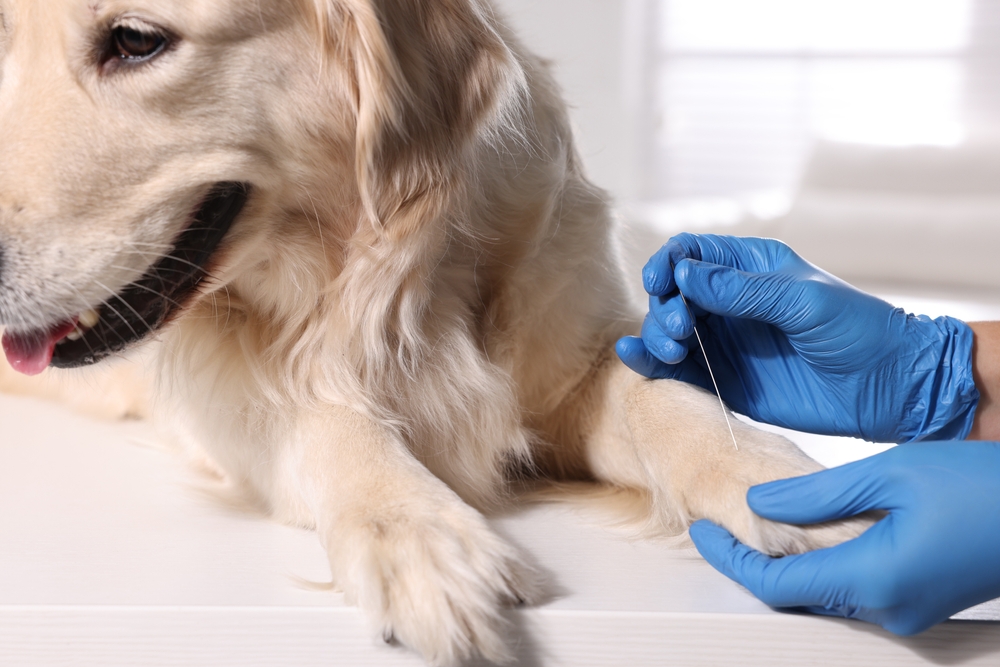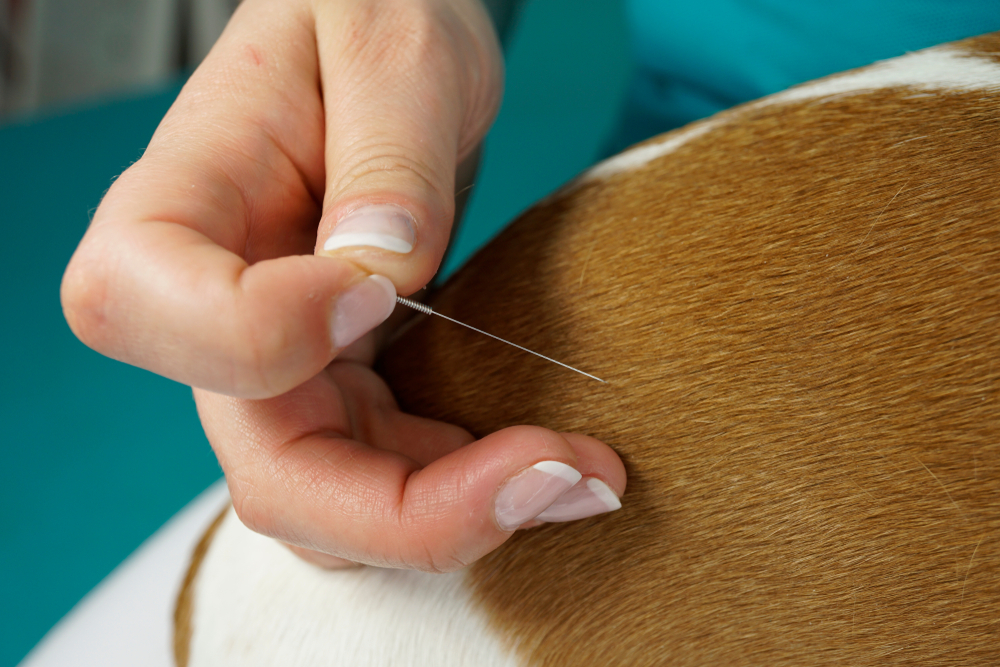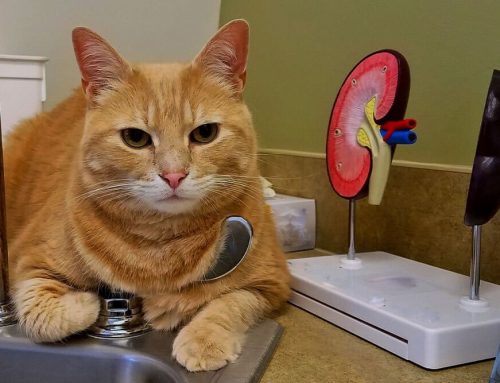Acupuncture can be used to manage numerous pet problems to promote healing and decrease pain, and can be safely implemented without causing systemic side effects. Our team at MountainView Veterinary Hospital provides information about veterinary acupuncture to help you determine if your pet could benefit.
Veterinary acupuncture benefits
Ancient Chinese medicine doctrine asserts that imbalances in the body’s energy flow (i.e., Qi) cause disease, and acupuncture can restore these energy balances and help the body heal itself. Human practitioners have used acupuncture for thousands of years, and the practice is becoming more widespread in veterinary medicine. Acupuncture involves inserting hair-thin needles in body areas where nerve bundles and blood vessels intersect. These areas, called acupuncture points, are found all over the body on meridians, which permit energy cycles to occur over a 24-hour period. Benefits for pets by stimulating these points through acupuncture include:
- Decreased inflammation and pain — Hormones, including norepinephrine and endorphins, are released to naturally relieve pain and reduce inflammation throughout the body.
- Muscle relaxation — Muscles at the insertion point and throughout the body relax, which can enhance local and generalized pain relief.
- Improved tissue oxygenation — Tissue blood flow is improved, allowing for better tissue oxygenation.
- Metabolic waste removal — Acupuncture promotes metabolic waste and toxin elimination.
- Improved intestinal function — Acupuncture has been demonstrated to regulate gastrointestinal (GI) motility, the brain-gut axis, visceral sensitivity, and the GI barrier.
- Improved immune function — The body’s immune cells, including white blood cells and T-cells, are increased, boosting the body’s immune function.
Conditions treated by veterinary acupuncture
Our veterinary acupuncturists, Dr. Elizabeth Boggier and Dr. Alli Sommerkorn, who are certified to treat small animals, including dogs and cats, often use acupuncture in conjunction with conventional Western therapies to provide the best possible treatment course for pet patients. Veterinary acupuncture can be used to treat many conditions, particularly those that involve pain and inflammation, including:
- Joint abnormalities — Acupuncture is most commonly used to treat osteoarthritis (i.e., joint inflammation) and degenerative joint disease (i.e., advanced osteoarthritis leading to decreased range of motion), and can also benefit other joint conditions, such as hip dysplasia and elbow dysplasia.
- Respiratory issues — Acupuncture can improve signs in conditions such as asthma and bronchitis.
- Gastrointestinal disorders — Since acupuncture helps regulate gastrointestinal function, pets suffering from disorders such as chronic constipation, chronic diarrhea, and irritable bowel syndrome can benefit.
- Eye diseases — The eye is surrounded by acupuncture points, and stimulating these points can help return the eye to normal function. Pets affected by conditions such as dry eye, glaucoma, and corneal ulcers can benefit from acupuncture.
- Systemic diseases — Acupuncture can reduce complications caused by illnesses such as liver and kidney disease.
- Cancer — Cancer can cause pain, nausea, decreased appetite, and lethargy, which acupuncture can minimize.
- Seizure disorders — Acupuncture can decrease the severity and frequency of seizure episodes, and potentially decrease the required medication doses.
- Spinal disorders — Acupuncture can help reduce pain associated with spinal disorders, and may help restore normal nerve transmission.
- Neuromuscular disorders — Acupuncture can help improve muscular function in pets with some neuromuscular disorders.
Unlike some pharmaceutical therapies, veterinary acupuncture causes no adverse side effects, and the treatments can be used safely in conjunction with other medications and supplements.
What to expect at a veterinary acupuncture session

During your pet’s first veterinary acupuncture session, we will ask you to provide a detailed history of your pet’s condition, and we will perform a thorough traditional physical examination to ascertain if your pet is a good acupuncture candidate. If Dr. Boggier or Dr. Sommerkorn determine that acupuncture can benefit your pet, they will use Traditional Chinese Veterinary Medicine techniques to assess your pet and create an appropriate treatment plan. Questions commonly asked about these sessions include:
- Will my pet experience pain during an acupuncture session? — Most pets don’t seem to notice the needles being inserted, and many relax to the point of sleepiness. During the initial session, some pets may be anxious, and you can bring a favorite toy or blanket to help keep them calm.
- What should I expect after my pet’s acupuncture session? — Some pets are sore or stiff after an acupuncture session, which typically resolves in 24 to 48 hours.
- How many acupuncture sessions will my pet need? — Your pet’s condition will determine how many sessions they need. Some conditions require only a few sessions, while others, such as osteoarthritis, require ongoing sessions. Typically, your pet will start showing improvement after three to five sessions, and their treatment frequency can be tapered as their condition improves.
Veterinary acupuncture complements many traditional treatment options to promote healing and decrease pain in numerous medical conditions. If you think acupuncture could benefit your pet, contact our team at MountainView Veterinary Hospital to schedule an acupuncture assessment.









Leave A Comment